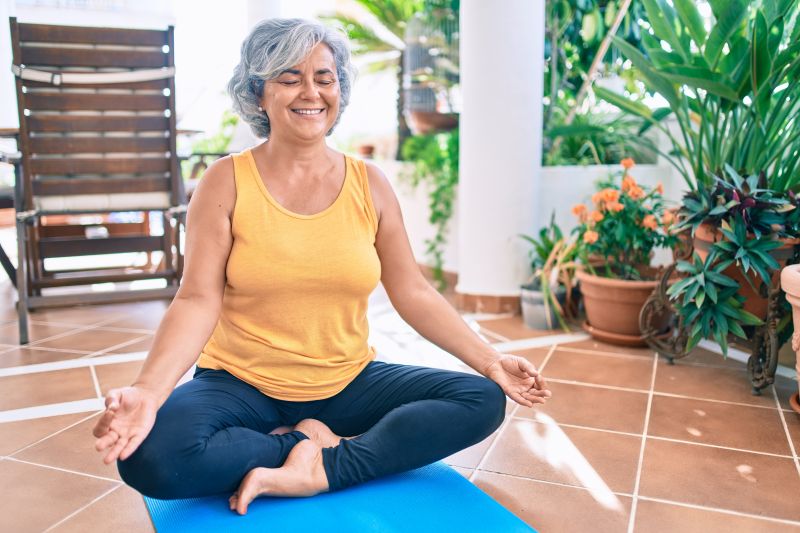Here is How Yoga Helps Brain Health In Older Adults

Yoga can have significant benefits for brain health in older adults. Research suggests that regular practice of yoga can improve cognitive function, enhance memory, reduce stress, and even increase brain volume in regions associated with memory and attention. Here are some specific ways yoga helps brain health in older adults:
- Improved Cognitive Function: Studies have shown that yoga can enhance various cognitive functions, including attention, memory, and executive function. This is particularly important as these abilities often decline with age.
- Stress Reduction: Yoga incorporates breathing exercises, meditation, and physical postures, all of which can reduce stress levels. Lower stress levels are associated with better brain health and a lower risk of cognitive decline.
- Increased Brain Volume: Some research indicates that practicing yoga can lead to increases in brain volume in areas associated with memory and learning, such as the hippocampus.
- Better Mood and Emotional Regulation: Yoga can help improve mood and reduce symptoms of depression and anxiety, which can negatively impact cognitive function if left unchecked.
- Enhanced Neuroplasticity: Regular yoga practice can promote neuroplasticity, the brain's ability to form new neural connections. This is crucial for learning and memory.
- Improved Sleep: Good quality sleep is essential for cognitive health, and yoga can improve sleep patterns in older adults, contributing to better overall brain function.
- Mind-Body Connection: Yoga encourages a strong mind-body connection, promoting mindfulness and body awareness, which can help in maintaining cognitive function.
- Social Interaction: Group yoga classes provide social interaction, which is beneficial for mental health and cognitive function, reducing the risk of loneliness and social isolation.
Specific Yoga Practices Beneficial for Brain Health
- Hatha Yoga: This includes a combination of physical postures (asanas), breathing techniques (pranayama), and meditation, which together can enhance cognitive function and emotional well-being.
- Kundalini Yoga: Known for its emphasis on breath control, chanting, and meditation, Kundalini yoga can significantly reduce stress and anxiety, leading to improved cognitive health.
- Restorative Yoga: Focused on relaxation and stress reduction, restorative yoga can help calm the nervous system and improve mental clarity.
- Vinyasa Yoga: The dynamic flow of Vinyasa yoga helps improve physical fitness and coordination, which can positively impact brain health.
- Meditation and Pranayama: Incorporating meditation and breathing exercises into daily routines can enhance mindfulness and reduce stress, promoting better cognitive function.
By integrating yoga into their regular routine, older adults can experience these cognitive benefits, helping to maintain and even improve their brain health as they age.
